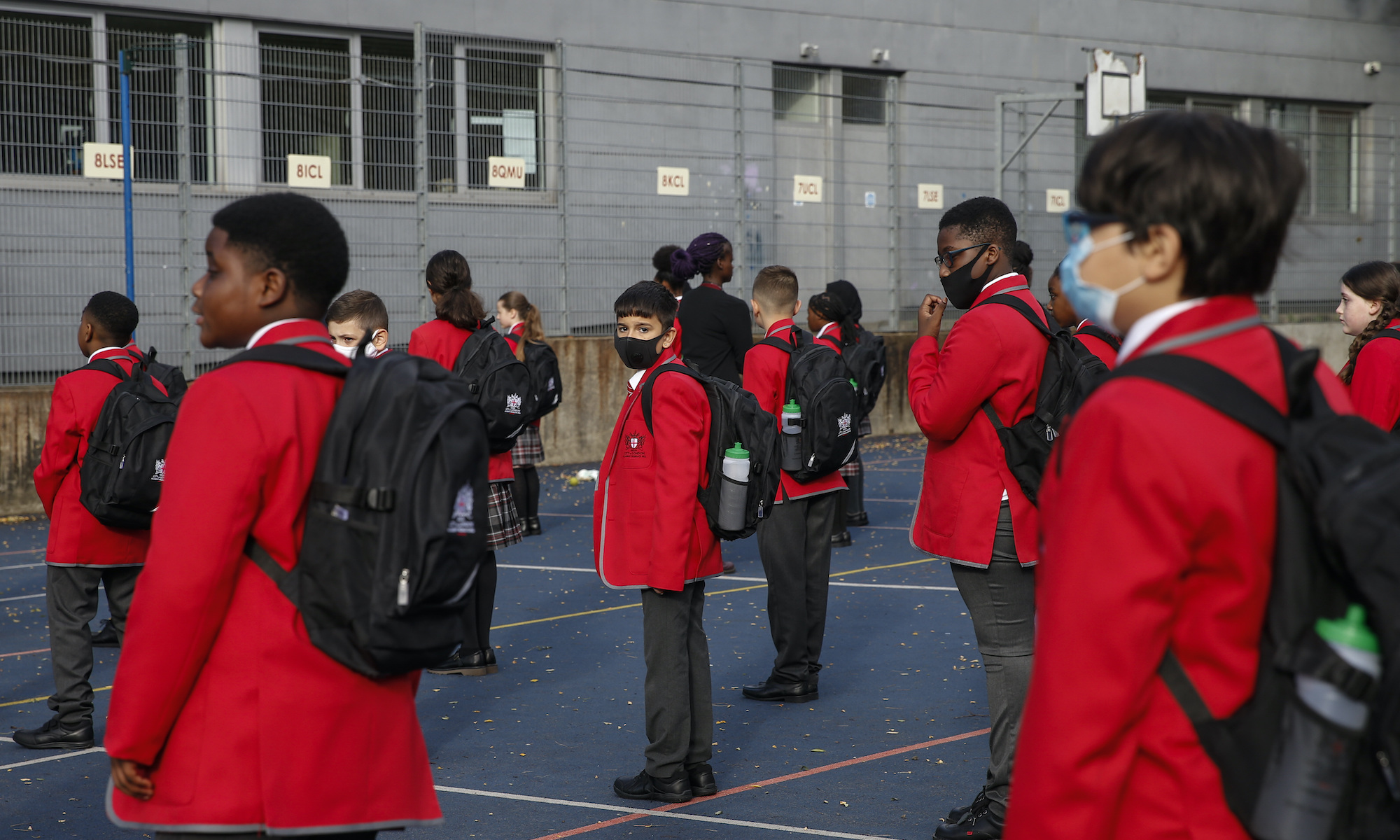Masks have no place in the classroom
Pupils cannot properly learn and teachers cannot properly teach with their faces covered up.

‘You can’t teach with face coverings; you can’t expect people to learn with face coverings.’ Back in August, Boris Johnson was clear: getting children to wear face masks in the classroom was ‘clearly nonsensical’. He was absolutely right. Interaction is an essential part of teaching and learning and it is impossible to engage fully in classroom activity if half of your face is covered.
But now, as the government’s roadmap out of lockdown has revealed, secondary-school pupils will be expected to mask up in the classroom when they return to school next month. A shrug of the shoulders, a flick of the pen, one more item added to the ever-expanding list of Boris’s u-turns. What happened to the belief that this was ‘clearly nonsensical’? It seems we don’t even deserve an explanation.
Since September, many secondary-school pupils have had to wear masks in corridors and communal areas, as well as on public transport getting to and from school – when they have been permitted to attend, that is. This latest requirement for them to wear masks in the classroom means that children as young as 11 will spend the majority of their waking hours donning a face mask.
The problems with masks in the classroom cannot be overstated. Skilled teachers use their own facial expressions to indicate when it is time to keep quiet and pay attention and when it is time to relax. They observe the faces of their pupils as they read the room and spot who has understood and who is struggling to keep up. Masks prevent all of this from happening. They are fundamentally antithetical to education.
Those desperate to see children gagged argue that mask-wearing is the norm in some southeast Asian countries that score highly in global educational league tables. But this ignores the fact that such countries have a different cultural approach to education than we do in the UK. Rightly or wrongly, children in countries like Thailand and South Korea are used to far more didactic teaching methods. It is expected that children will sit in rows, face the teacher and work in silence. In contrast, British teachers are more likely to involve children in discussion, get them to work in pairs or small groups and expect them to help each other. In this context, masks are a barrier to learning.
Schools are about more than teaching. There has been growing concern about children’s mental health during lockdown. Normally, a teacher scanning a classroom full of children will quickly spot a pupil looking uncharacteristically down: masks hinder this process.
Opening schools next month is recognition of the urgent need for children’s lives to return to normal. But only coming into contact with people wearing masks is far from normal. It turns schools into a strange and alienating environment.
School is also where children meet their friends and socialise. It’s where they laugh, gossip, share worries and concerns, argue and make up. All of this becomes more difficult when you can’t even smile at a classmate. Masks suppress our most human instincts to express emotion and connect with others. They prevent children from building the relationships that may well develop into lifelong friendships. Schools, as institutions, should help children become part of society. But mask-wearing hinders social connections and makes even empathy more difficult.
Then there are other, more practical concerns. The health implications of growing children and adolescents being expected to wear masks for such an extended period of time are unknown. No one seems bothered to find out. Those keen to mandate masks assume they will be worn correctly and changed frequently. Perhaps it’s just me, but personal hygiene rarely seems to be a feature of the teenagers I come across. My guess is most children would sooner wear the mask that got trampled on the floor of the bus than risk a detention.
Masks stop children from engaging with friends and participating in learning. They make children atomised and turn schools into an alien environment. And Boris Johnson appeared – back in August – to know all this. So what changed?
Almost everyone now agrees that schools reflect community levels of coronavirus transmission. But this didn’t stop government ministers, having first scared the population witless with talk of mutant strains and new virus variants, implying that schools were dangerous vectors of infection. Having been far too successful in this mission, they now find it is not easy to order business as usual.
Tragically, we must add to this mix the teaching unions that have disagracefully exploited coronavirus – and, by implication, children – for their own political gain. The result is that children must wear masks in school. Not for their own benefit – Covid poses negligible risk to the young — but to appease adults. Teenagers are being asked to compensate for the mistakes of government ministers who panicked, acquiesced and hold no principles that cannot be reversed on a whim.
It is good that children will be returning to the classroom. There was never any justifiable case for keeping them at home. But sadly, with class bubbles, frequent Covid testing and mask-wearing, school will be far from normal.
We can only hope that once they start meeting up again, teen spirit and an urge to rebel will result in masks and all the other social-distancing measures imposed on children being kicked into the bin.
Joanna Williams is the author of Policing Hate: Have we abandoned freedom and equality? published by Civitas.
Picture by: Getty.
To enquire about republishing spiked’s content, a right to reply or to request a correction, please contact the managing editor, Viv Regan.












Comments
Want to join the conversation?
Only spiked supporters and patrons, who donate regularly to us, can comment on our articles.